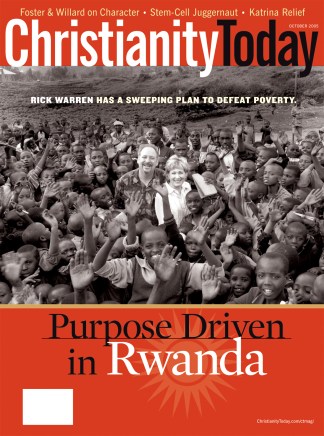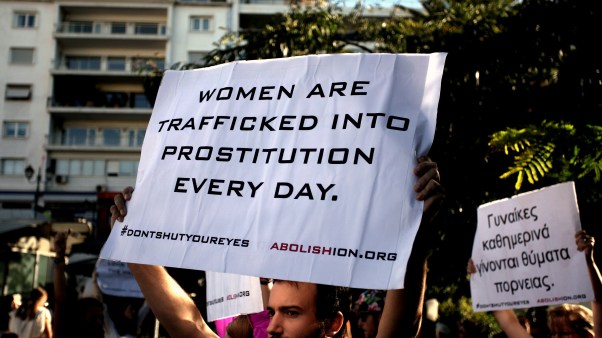John Garang, newly inaugurated vice president of Sudan, died July 30 in a helicopter crash in the southern Sudanese mountains. With his death, many fear that the fragile peace process is threatened.
Garang, 60, had been the rebel leader of the Sudan People’s Liberation Movement (SPLM)—a largely Christian movement based in southern Sudan—through a 22-year civil war against the Muslim-dominated government of Sudan. He wanted to establish a secular, democratic government, one that guaranteed civil rights and religious freedom. Two million southerners died in the conflict, and four million were displaced.
Garang’s vision was realized with the January 9, 2005, signing of a peace agreement with the Sudanese government. The agreement mandated Garang’s inauguration as Sudan’s vice president on July 9, making him second in power only to President Omar al-Bashir. It also made Garang the highest-ranking Christian in any Muslim-dominated government in the world. He won important concessions for southerners: the removal of Islamic law, an equal share of oil revenues, representation in the Sudanese administration and legislature, and political and economic autonomy.
A physically imposing man, Garang held together various factions divided by political and tribal differences by dint of his autocratic leadership. News of his death incited a sense of impending disaster among southerners and international leaders alike. They voiced concerns that his successor, Salva Kiir, might not be able to maintain the unity or confidence of splm leaders or the Sudanese government. However, splm leaders quickly rallied behind Kiir, who vowed to continue Garang’s policies.
News of Garang’s death unleashed riots in Khartoum. Southern refugees believed he had been assassinated. Arab gangs retaliated, and the Sudanese military had to restore order, arresting more than 2,000 people and imposing a curfew. More than 100 people were killed in the melee, with hundreds wounded. Sudanese government and splm officials agreed there was no evidence of foul play in Garang’s death. They immediately attributed the crash to bad weather.
Laiu Fashai, Sudan director for the missions agency Serving in Mission, said government officials assured him that the religious freedom promised in the peace agreement will be protected.
Wes Bentley is director of Far Reaching Ministries, a ministry in fellowship with Calvary Chapel that has trained chaplains for the splm in southern Sudan since 1999.
“The people are in deep shock,” Bentley said. “They’re affected by Garang’s death much like the African American community was by the death of Martin Luther King.”
Copyright © 2005 Christianity Today. Click for reprint information.










